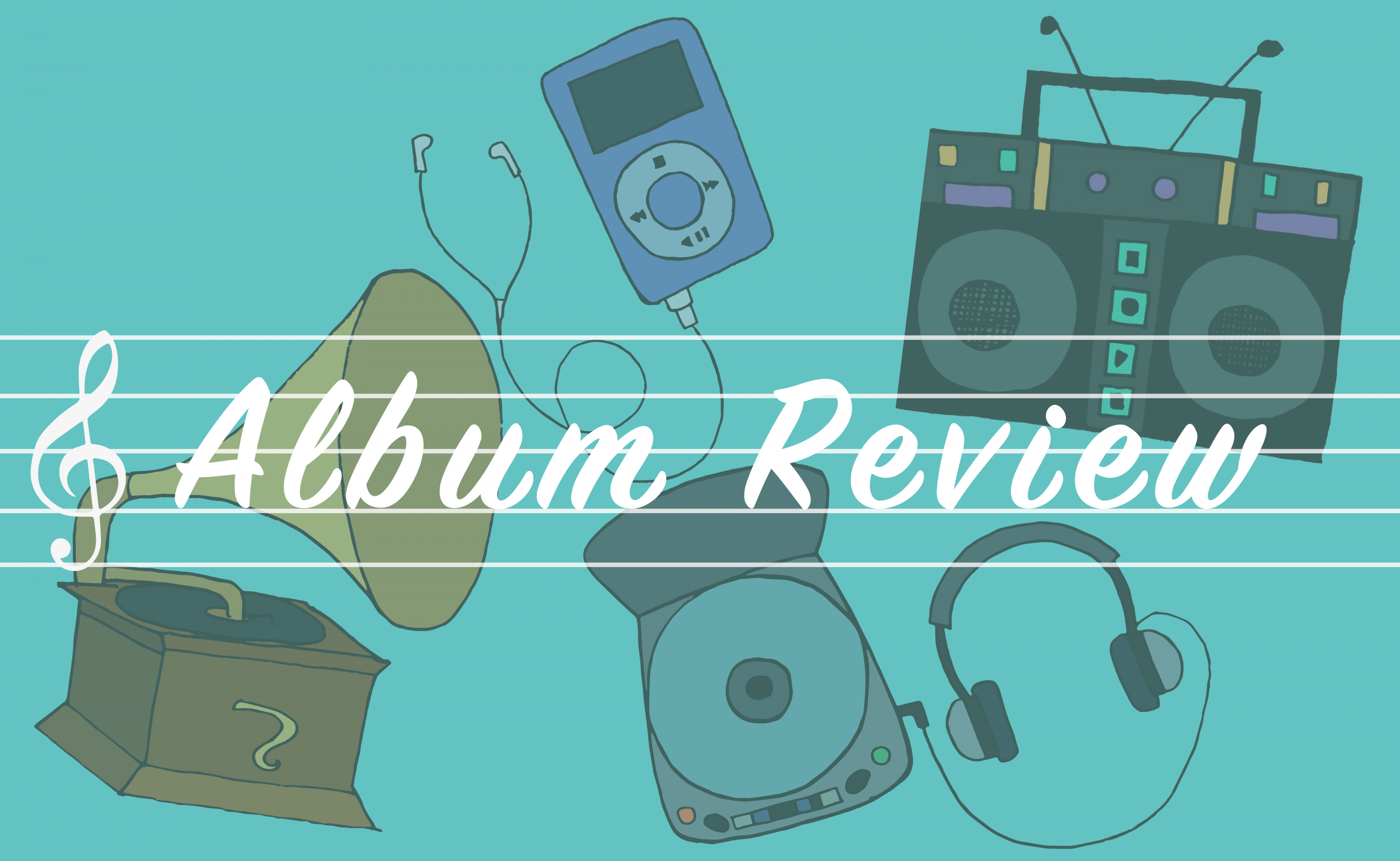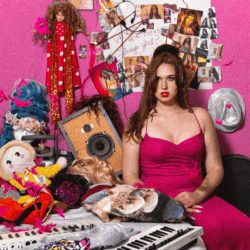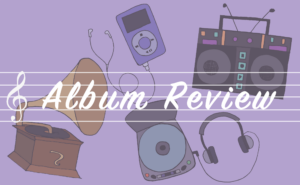A 30 song, two-hour-plus version of Red. In the words of Taylor Swift, “I never saw [it] coming, and I will never be the same.” Red (Taylor’s Version) takes listeners on a journey through her early twenties as she deals with heartbreak, grief, love, and longing. Swift has grown up alongside so many of us, and her newest release allows us all to laugh, cry, and dance alongside her once again as she continues rerecording her early albums to regain control of her extensive catalogue.
Of the album’s 30 tracks, the first 21 are rerecordings of songs on the already lengthy deluxe edition of Red, while the remaining nine are new songs Swift dubbed as “From The Vault.” While many of the rerecordings were near-perfect replicas of the 2012 version, Swift also seized the opportunity to polish and update some songs from the original album in her rerelease. While this process of refinement created new classics with the release of the Vault songs, a few tracks from the original album were overproduced to the point that they lost their original charm. “The Moment I Knew” originally felt like a raw confession into the mirror after she was abandoned by her then-boyfriend at her 21st bday, but was completely transformed for the rerelease. With crashing cymbals and sweeping orchestral notes, the song lost its honest emotion, and instead felt overdone and more akin to the ballad at the climax of a Disney movie. Meanwhile, another song, “Girl at Home,” was a bonus track on the deluxe edition of Red and felt unfinished at the time. Now that the song was officially on the album, “Girl At Home” was edited and transformed into a synth-driven electropop anthem. While it sounds incredibly different, the new and complete version of the song is energetic, fun, and even clubby. “The Last Time,” a duet with Gary Lightbody of Snow Patrol (the band responsible for the “Grey’s Anatomy” staple and all-around iconic record “Chasing Cars”) has also been revamped, seemingly to mimic Lightbody’s early-2000s soft rock style.
With Red (Taylor’s Version), Swift also added nine new songs “From The Vault.” According to her, these songs were written during the period of time she wrote songs for Red but didn’t ultimately make the final cut. Along with the highly anticipated ten-minute version of fan-favorite “All Too Well,” the Vault features records Swift had written and then given away to other artists, exciting collaborations, and a great deal of sonic and thematic diversity. Here are our thoughts on each Vault song, scored out of Swift’s lucky number 13 based on lyrics and instrumentation:
“Better Man”
This song was picked up by Little Big Town after it was cut from the original release of Red, but Taylor’s version brings a new level of stripped-back emotion to this song about melancholy reminiscence. The strong and melodic harmonies feel as if the current, grown up Swift is reaching out with love and support to her younger self. “Better Man” grapples with the emotional conflict between grieving what one once had in a relationship and understanding that ending it was for one’s own good. Like many of the tracks on this album, this song could be about Swift’s relationship with ex J*ke Gyllenhaal, but the lyrics stand out from the rest of her work—which is known for its hyperspecificity—as they could be applied to many different situations. While the lyrics of “Better Man” are quite sophisticated, the sound created here is reminiscent of her earlier work and country roots, transporting listeners to a rustic barn with the plucky notes of violins, cellos, and acoustic guitars. By highlighting the vocals and strings, this song contrasts well with the more-produced pop pieces of the album. (9/13)
“Nothing New (feat. Phoebe Bridgers)”
Bridgers’ voice blends perfectly with Swift’s as the two narrate the experience of growing out of your teen years. Since Swift has finally found and established her voice, she is able to use each of the collaborations in Red (Taylor’s Version) to showcase the unique talents of other artists, and she does just that here. The sound of this track is reminiscent of Bridgers’ breathier, slower songs, like “Savior Complex.” “Nothing New” also appears to be one of the first times that Swift dives into the unique challenges of being a woman scrutinized by the public. When discussing the female experience in “I Did Something Bad” and “Mad Woman” on her later albums, Swift uses analogies to witch hunts and hysteria, and by sharing “Nothing New” with the public, she seems to share, too, the foundation for this pattern. She discusses how the media “hunt[s] and slay[s]” the young women who enjoy their youth, then describes the way that she will inevitably be cast aside when the next new and youthful girl breaks onto the music scene. (13/13)
“Babe”
Swift wrote this song during the Red era with Pat Monahan from Train, and passed it off to country band Sugarland who recorded their own rendition in 2018. For Taylor’s Version, she teams up with longtime producer and collaborator Jack Antonoff, adding a poppier sound, and, inexplicably, a lot of snare drum. While many of Swift’s production choices on this album were enjoyable, in the case of “Babe,” the instrumentation distracted from the rawness and emotion of the lyrics. Something about the juxtaposition of punchy synths alongside lyrics lamenting the infidelity and betrayal of a toxic ex (shoutout J*ke Gyllenhaal) is fundamentally incongruous. Historically speaking, some of Swift’s best songs have been upbeat bops with very sad lyrics, but with “Babe,” that dissonance was a bit overdone and missed the mark. (7/13)
“Message In A Bottle”
The fact that this song sounds like the soundtrack to a trip to Macy’s circa 2013 demonstrates the underlying tension of Red as an album. On the one hand, Swift was making some of her best acoustic, lyrically-driven country music ever, yet on the other hand, she was ready to transition into the pop world, and “Message In A Bottle” was one of her early (and arguably unsuccessful) forays into the genre. Swift co-wrote this song with Max Martin and Shellback, whom she would go on to work with on 1989 (2014) and Reputation (2017). Frankly, it makes sense that “Message In A Bottle” didn’t make the cut on the original album. Swift’s future collaborations with Max Martin and Shellback yielded far more sophisticated and distinctly Swiftian songs (e.g. “Style” or “King Of My Heart”), whereas this song could just as easily have been a Carly Rae Jepsen or Katy Perry pop banger, and doesn’t utilize Swift’s strengths as a songwriter or vocalist. The track is a better fit on Red thematically than it is sonically—Swift explores the excitement and nerves of the early stages of a relationship, echoing the optimistic sentiments of “Begin Again” and “Everything Has Changed.” (6/13)
“I Bet You Think About Me” (feat. Chris Stapleton)
On the flip side, Swift leans into her country roots and showcases all of her unique strengths on “I Bet You Think About Me.” Swift is at her best when she’s being witty, sarcastic, and self-aware (i.e. “Mean” or “Blank Space”), and this song features some of her best barbs to date as she calls out a privileged snob with an insufferable god complex. While a Taylor Swift x Chris Stapleton crossover was not on anyone’s 2021 bingo card, it could not have been a more welcome surprise. Stapleton’s characteristic husky timbre adds perfect harmony to Swift’s biting digs. Paired with a full complement of country instruments, including a full string quartet, a lap steel guitar, and yes, a harmonica (!!!!), this record is sure to be a favorite among diehard Old-Taylor stans. This song is so perfect that a point will not be deducted for self-plagiarism even though she used a near-identical chord progression in “Betty” on her 2020 album folklore. (13/13)
“Forever Winter”
Seasons hold a lot of symbolism on Red, with autumn representing a period of bliss, and winter threatening to destroy that happiness. “Forever Winter” describes Swift’s experience with a partner who seems to struggle with mental health issues, with winter symbolizing what things would be like without this person, forever cold and lonely. The innocent and yearning language is much simpler than other tracks on the album and feels reminiscent of her Speak Now era, with lyrics like “I’d fall to pieces on the floor if you weren’t around,” full of naivety and hope. Her youthful sense of hope is particularly apparent as she pleads with this person struggling with issues far larger than her. The production of the track, with faded trumpet notes and dreamlike percussion, feels similar to one of Swift’s more contentious tracks, “It’s Nice To Have A Friend,” which also deals with themes of innocence and youth. Just as a From The Vault release should, “Forever Winter” feels like a time capsule that has captured a freeze frame of Taylor Swift at 20 or 21, dealing with one of her first adult relationships. (10/13)
“Run (feat. Ed Sheeran)”
This track is the second duet between Sheeran and Swift on Red (Taylor’s Version), and the first song that the two artists co-wrote. The simplicity of the song, centered around vocal harmonies and acoustic guitar, turns the image of Taylor Swift and Ed Sheeran, two world class pop stars, on its head. Once immersed in the song, listeners feel the reality of what they are hearing, two kids in their early twenties riffing about escapism on their guitars. Similar to “Nothing New,” Swift adopts the production style of her collaborating artist, and in this case, incorporates the soft echoes and plucky acoustic guitar that Sheeran often uses in his ballads. In its original release, Red was criticized for featuring too many different sounds, as Swift was trying to please as many different audiences as possible. In her re-release, she is much more established and able to take more creative liberty, especially through the collaborations on this album. (11/13)
“The Very First Night”
Not to keep ribbing on “Message In A Bottle,” but “The Very First Night” is what “Message In A Bottle” wanted to be. Further evidence of Swift’s emerging pop inclinations, this song is successful because it doesn’t stray too far from Red’s upbeat acoustic sound on songs like “22.” The track also has a similar vibe to the pop-country bop “How You Get The Girl” from her next album, 1989. This resemblance, plus the song’s lyrics, seems to suggest that Swift wrote it at the tail end of the Red era, and potentially about a different subject than those featured on Red: Could this song be about none other than Mr. Harry Styles, famous for occupying the rare niche of being a Nice Taylor Ex™? Among other notable parallels, in “The Very First Night,” Swift says that “back then we didn’t know / we were built to fall apart,” an idea she echoes almost verbatim in “Out Of The Woods,” a song allegedly about Harry Styles on 1989, where she admits that “we were built to fall apart / then fall back together.” Ultimately, this song may not be about Harry Styles and all the speculation may be pointless, but you can’t blame this writer for wanting a cleanse after spending entirely too much time thinking about J*ke Gyllenhaal. All in all, who doesn’t love a fun record about an exciting fling? (11/13)
“All Too Well (10 Minute Version)”
The magnum opus of this album, and arguably of Swift’s entire career, “All Too Well (10 Minute Version)” has been dangled in front of the faces of fans and teased by Swift for the better part of a decade. The story goes that Swift walked into a tour rehearsal fresh off a heart-wrenching breakup, sat down at the piano, and, over a repetitive four-chord progression, eked out ten minutes of poignant, unfiltered emotion. Her record label told her that ten minutes was entirely too long, so she trimmed it down for the original 2012 release.
While the five minute version of the song gave us chills, and lines to scream about for years to come, the ten minute version gifted us with the complete story behind Swift’s tumultuous relationship with J*ke Gyllenhaal. As the song details, over a period of three months, J*ke managed to miss her 21st birthday party, blame her for being too young, and never say “I love you.” At every moment, when one might be foolish enough to believe that the lyrics could not get more heartbreaking, they do just that. The culmination of the bridge where Taylor screams that he “called me up again just to break me like a promise” carries so much additional weight after hearing in an earlier verse that he “kept me like a secret, but I kept you like an oath.” Even the title, All Too Well, was just a snippet of the full phrase, “just between us, did the love affair maim you all too well?”
The song becomes an anchor for Swift’s other ballads, and the lyrical parallels crafted are present throughout all nine of her studio albums, with the greatest example being “Tolerate It.” This track from Evermore acts as the older sister to “All Too Well.” In “All Too Well,” Swift details how J*ke Gyllenhaal skipped her birthday party with the lines, “weeping in a party bathroom…watch the front door all night willing you to come.” Swift also refers to herself in “All Too Well” as “a soldier who’s returning half her weight” and later as a “crumpled up piece of paper,” two metaphors for heartbreak that she references again in “Tolerate It,” stating she could “gain the weight of you then lose it,” and that she is “begging for footnotes in the story of your life.” All of these lyrical parallels are part of the genius web of metaphors that Taylor uses to refer to different relationships and moments in her life, and each adds to her unique prose style chock-full of ultra-specific metaphors that fans have come to adore. Her heartbreak described in Red is defined by the birthday party, the weight of the world lying on her shoulders, and the way she felt as disposable as a pad of paper, and she brilliantly and seamlessly weaves these themes into a song written nearly a decade later. Throughout her catalogue of work, but especially in Red, Swift’s lyrics leap off the page as she writes them, creating vivid imagery in the minds of listeners, and perfectly painting the picture of how she feels at each moment in time.
Sonically, Swift adjusted the production for the ten minute version, helping to give the song direction and variety so that the ten minutes really do fly by. Swift and Antonoff have mastered the art of elegant builds and subtle beat drops, especially on recent releases like “Cruel Summer” and “August,” but their work on “All Too Well (10 Minute Version)” is some of their best yet. Unlike other places on Red (Taylor’s Version), where Swift’s changes to instrumentation were not entirely effective, the updates to “All Too Well” perfectly complement the lyrics and highlight every emotional inflection. Particularly in the last verse, an impeccably placed beat drop transitions the listener to the song’s more thematic and abstract conclusion.
On the whole, the stakes were staggeringly high for “All Too Well (10 Minute Version)” after years of hype and anticipation. Yet Swift went above and beyond and exceeded every expectation. She skillfully mixes a raw, seemingly stream-of-consciousness songwriting style with poetic and flowery metaphor, resulting in a lyrical masterpiece that truly only Taylor Swift could have created. Paired with exactly the right accompaniment, she managed to accomplish the impossible feat of improving upon an already flawless song. (14/13!)
***
Red was a major inflection point in Taylor Swift’s career trajectory. Musically, at this point in Swift’s discography, she was transitioning from country to pop, two completely different genres. In the original release, she felt she had to please both country and pop audiences, and it left the album feeling choppy. This go-around, Swift leaned into her own sound and was better able to straddle the line between country and pop, with some songs leaning into the twang of her roots, and others full of the synth and bass that she embraced in her future pop albums.
Red was also a period of transition for Swift’s public image. During the era, Swift found herself on the precipice of superstardom, and suddenly had more eyes on her than ever before. From constant judgements on her dating life to the influence of her record label and the challenge of meeting critics’ and the industry’s seemingly impossible standards, Swift was under tremendous creative and personal pressure. Now, as she revisits the album nine years later as a firmly established artist, she has much more freedom to experiment, allowing her to release the album she always wanted to make.






